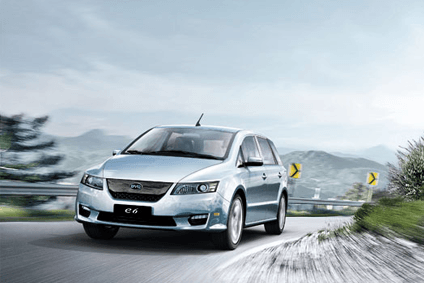Rising air pollution in major cities across Asia has forced local governments to impose restrictions on the sale and circulation of vehicles in recent weeks, affecting millions of motorists.
At the beginning of January, India's capital city Delhi created headlines worldwide when it restricted the circulation of private vehicles to alternate days until 15 January, after fine dust particles in the air reached levels regarded as health-threatening to the city's population.
The city authorities also suspended sales of diesel passenger vehicles over 2000cc until further notice, triggering calls from local vehicle manufacturers for an open debate on the problem.
Delhi will undoubtedly impose further restrictions on vehicle circulation at peak pollution levels in the future and other major cities in India will likely follow its lead.
Passenger vehicles invariably are a significant cause of air pollution in Delhi, as in other cities across the world, but are not the sole source of harmful emissions. Commercial vehicles, two- and three-wheeled vehicles, coal power stations, building sites and factories are also major contributors.
Targeting the circulation of personal vehicles is perhaps the most visible and politically acceptable course of action for the city's mass population. But with around 9m vehicles registered in the Delhi area, an awful lot of motorists have been left frustrated by these restrictions.
China has some of the most polluted cities in the world, with the capital city Beijing among the worst offenders. Other cities renowned for dangerous levels of smog include Shijiazhuang and other urban and industrial sprawls in nearby Hebei province, Guiyang in Guizhou, Xi'an (Shaanxi), Jinan (Shandong) and Zhengzhou (Henan), to name but a few.
Most major cities in China have measures in place to restrict new vehicle registrations and are increasingly predisposed to limit vehicle circulation as a short-term response to the problem of air pollution.
Last month, Beijing restricted traffic circulation to alternate days, affecting close to 5m vehicles, and also forced some businesses to suspend operations, including some of the city's worst polluting factories and building projects.
Beijing is also restricting the number of new licence plates it issues, with priority given to low and zero emission vehicles such as electric vehicles (EVs) and plug-in hybrids (PHEVs), together referred to locally as new energy vehicles (NEVs).
In China, encouraging the use of NEVs is seen increasingly as part of the long-term solution to air pollution by both local governments and car buyers. The Chinese central government also is supporting this drive by helping to establish broad-based EV recharging infrastructure nationwide. It has set a target of 5m new energy vehicles on the country's roads by 2020.
Almost all countries in Asia, including China, South Korea, Japan, Thailand and Malaysia, have preferential tax rates for low emissions vehicles. This, in part, is to help make them more affordable while economies of scale remain limited.
The South Korean government has gone further and is providing grants to encourage domestic manufacturers to produce 920,000 hybrid and electric vehicles in the country by 2020, up from an estimated 80,000 units in 2015.
China to become the global EV hub
With NEVs largely exempt from registration and circulation restrictions in China's main cities, and with buyers benefiting from zero purchase tax until the end of 2017, there is now significant momentum behind this segment.
The country's urban car buyers are turning to NEVs in greater and greater numbers in order to secure their mobility and are increasingly prepared to trade in the performance and "convenience" of traditional cars.
An estimated 240,000 NEVs were sold in China last year, based on data complied by the China Association of Automotive Manufacturers. Of these, around 165,000 were EVs and 75,000 were plug-in hybrids. Sales of other types of NEVs, including fuel-cell cars, were negligible.
While this is just 1% of the estimated 24m vehicles sold in the country last year, it was nevertheless a threefold increase on the previous year. Sales in 2014 also were 3.5 times higher than 2013 levels. With further strong growth predicted in the next five years, economies of scale are starting to build up.
Domestic vehicle manufacturers see NEVs as an opportunity to establish an early lead in one of the automotive industry's most promising growth segments and are gearing up for very rapid demand growth. Many are working with South Korea's LG Chem, which is establishing significant battery production capacity in the country.
Chang'an Automobile last year announced plans to invest CNY18bn (US$2.9bn) over the next ten years to develop and produce up to 2m electric vehicles per year.
BYD claims to be the world's largest manufacturer of electric vehicles, with an estimated 50,000 units sold worldwide last year. It has similarly ambitions plans to expand EV production capacity, targeting also the commercial vehicle sector.
Geely Auto is reported to be planning to switch 90% of production capacity to electric or hybrid vehicles by 2020. Last year it sold close to 510,000 vehicles in China.
Other local and foreign brands also are stepping up NEV production in China and new partnerships are being forged to take advantage of the expected growth.
China's automotive sector has proved over the last decade that it can lift production capacity very rapidly when needed. The NEV sector is expected to grow substantially over the next decade, to potentially establish the country as the leading global manufacturing hub for electric vehicles and parts.







